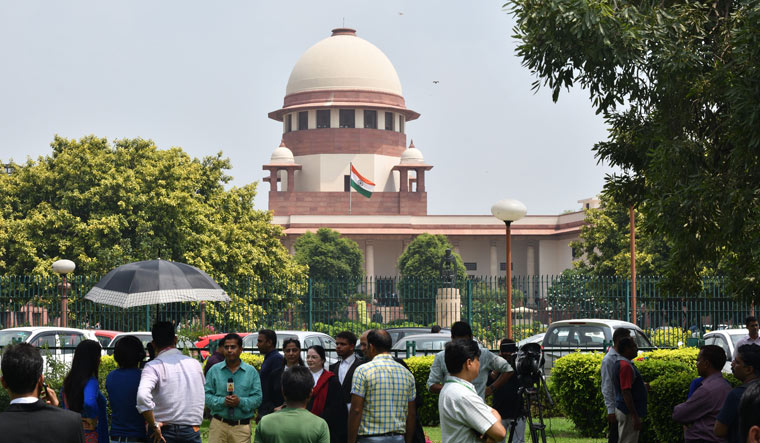Giving ample reason to cheer for the Arvind Kejriwal government, the Supreme Court chose to weigh in the importance of elected representatives. Recognising the power vested in elected representatives, the Supreme Court underlined the limitations of the lieutenant governor's powers as to what course of action the LG can take when there is a difference of opinion with the council of ministers.
Article 289AA of the Constitution, which deals with the special status of Delhi, places the lieutenant governor of Delhi in a more powerful position than the governors of full states. Clause 4, a proviso to Article 239AA, gives the lieutenant governor the power to refer “any matter” on which the LG differs with the elected government to the President of India for a decision. Pending such decision by the President, the LG is empowered to take action if the issue is of an urgent nature.
However, the Supreme Court in its verdict has interpreted Clause 4 as how the LG can exercise the power which the proviso confers on him.
The five-member Constitution bench led by Chief Justice Dipak Misra comprised justices A.K. Sikri, A.M. Khanwilkar, D.Y. Chandrachud and Ashok Bhushan. The bench stated that the difference on any matter has to be interpreted in such a manner that not every difference gets referred to the President, thereby bringing the governance to a standstill.
“It is clear that the words 'any matter' occurring in the proviso to Article 239AA(4) does not necessarily need to be construed to mean 'every matter'... The Lt Governor need not, in a mechanical manner, refer every decision of his Ministers to the President. He has to be guided by the concept of constitutional morality,” wrote Misra.
A major grouse of the Kejriwal government is that Lieutenant Governor Anil Baijal does not clear files pertaining to policy decisions taken by the government. The AAP government has also complained that the Union government has placed roadblocks on legislations passed by it, which has affected the governance in Delhi.
Justice D.Y. Chandrachud, writing a separate judgment, said Clause 4 forms the bone of contention.
“The proviso to Article 239AA(4) must be operated and applied in a manner which facilitates and does not obstruct the governance of the NCT. If the expression ‘any matter’ were to be construed as ‘every matter’ or every trifling matter that would result in bringing to a standstill the administration of the affairs of the NCT,” Chandrachud wrote.
He prescribed that before the lieutenant governor refers a difference in opinion to the President, he must make every effort to resolve the differences with the elected government. He said that while the nature of differences, which may warrant a reference to the President, cannot be exhaustively catalogued, it would be appropriate to construe the proviso as a protector of national concerns in regard to the governance of the National Capital Territory of Delhi.
Justice Ashok Bhushan said that the provision should not be exercised in a routine manner, and that it should rather be exercised on valid reasons after due consideration, when it becomes necessary to safeguard the interests of the Union territory.


